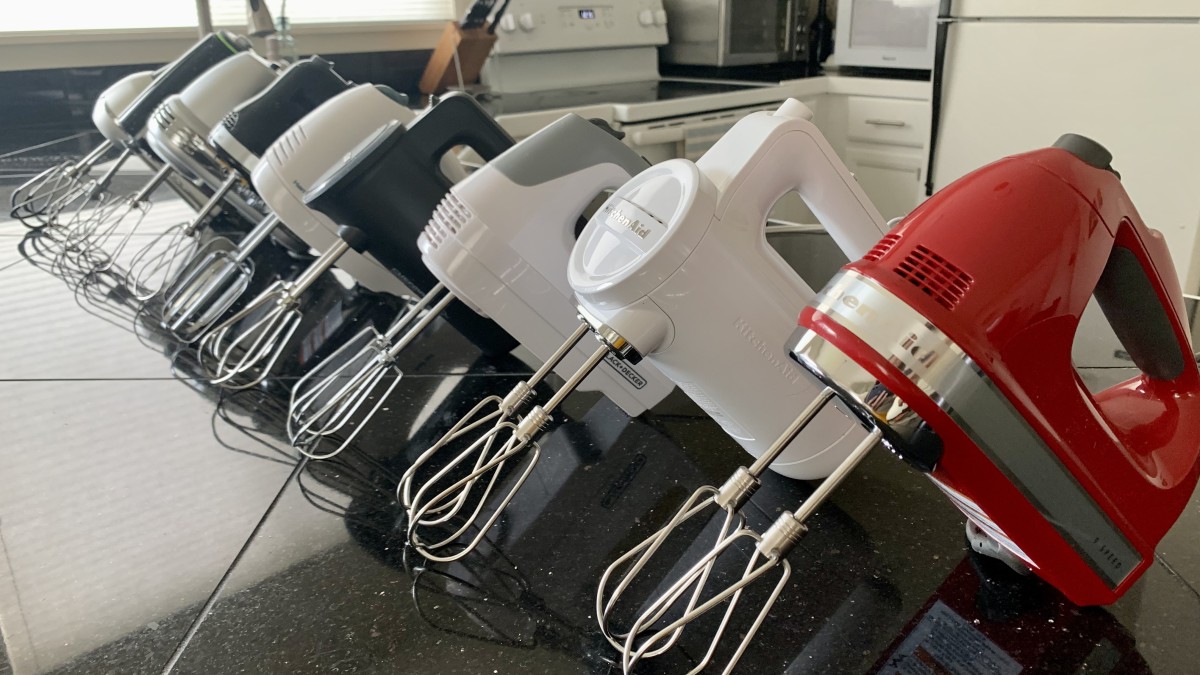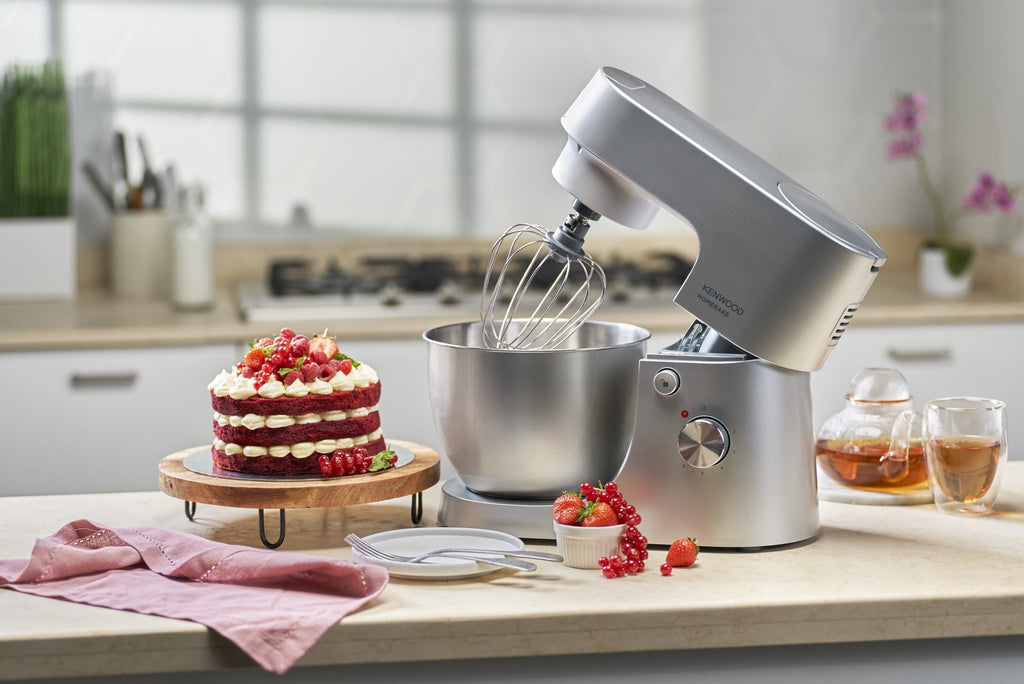Ever been in the middle of creaming butter and sugar, only to hear your hand mixer whine, sputter, and smell faintly of hot plastic? We’ve all been there. It’s the moment you realize not all kitchen gadgets are created equal. This often leads to the crucial question that can change your baking game forever: What Is A Powerful Hand Mixer, really? It’s a question that goes far beyond the number printed on the box. A truly powerful mixer is your trusted sidekick, ready to tackle thick cookie dough, whip meringue to stiff, glossy peaks, and knead bread dough without breaking a sweat. It’s the difference between a frustrating chore and a joyful creative process. In this guide, we’re going to crack open the casing and explore what true power in a hand mixer looks like.
From Arm-Ache to Automation: A Quick Spin Through History
Before we dive into the nuts and bolts, let’s appreciate how far we’ve come. The concept of a mechanical mixer emerged in the mid-19th century, but these were clunky, hand-cranked contraptions. The first electric food mixer was a behemoth invented in 1908 for commercial bakeries. It wasn’t until the 1930s that more “portable” (and I use that term loosely) stand mixers entered home kitchens. The true handheld electric mixer, a lightweight and affordable marvel, became a kitchen staple in the 1950s and 60s, liberating home bakers from the tyranny of the whisk and wooden spoon. Early models were simple, but today’s powerful hand mixers are feats of engineering, packed with technology designed for performance and precision.
What Defines a Powerful Hand Mixer? It’s More Than Just Watts
Many people believe a higher wattage number automatically means a better, more powerful hand mixer. While it’s a factor, it’s a classic case of seeing only one part of the bigger picture. True power is a combination of motor efficiency, torque, build quality, and smart design.
The Wattage Myth: What Those Numbers Really Mean
The wattage listed on a hand mixer indicates how much power the motor draws from the wall, not necessarily how much mixing power it outputs. The real hero is the motor type and the torque it generates.
- AC (Alternating Current) Motors: These are common in less expensive models. They can be powerful but are often heavier, noisier, and less efficient. A 350-watt AC motor might struggle with a dense dough.
- DC (Direct Current) Motors: This is where the magic happens. DC motors are the gold standard in a powerful hand mixer. They are significantly more efficient, lighter, quieter, and deliver more consistent power and torque, even at lower speeds. A 220-watt DC motor can easily outperform a 350-watt AC motor, tackling tough jobs without straining.
The bottom line: Don’t be swayed by a high wattage number alone. Look for mixers that specify a DC motor for superior, efficient power.
Speed Settings and the Magic of a Slow Start
A powerful hand mixer isn’t just about going fast; it’s about control. Look for a mixer with at least 5 speed settings, though 7 to 9 is ideal for true versatility. More important than the top speed, however, is the low speed.
A “slow start” or “soft start” feature is non-negotiable. This function gradually brings the beaters up to the selected speed, preventing that dreaded “flour cloud” from erupting all over your countertop and your clothes. It gives you ultimate control right from the beginning, whether you’re gently folding in chocolate chips or incorporating dry ingredients.
As professional pastry chef Amelia Grant puts it, “A slow start feature is a kitchen lifesaver. It’s the single most overlooked feature by home bakers, but it’s what separates a clean, controlled mix from a chaotic mess. For delicate batters and heavy doughs alike, starting slow is the key to a perfect texture.”
Attachments That Pack a Punch: Beyond the Beaters
The power of your mixer is only as good as the tools it’s spinning. A great hand mixer comes with well-designed, durable attachments.
- Turbo Beaters: Standard beaters are fine, but look for sturdy, stainless steel “turbo” or “flex edge” beaters. These are designed without a center post, which makes them much easier to clean and reduces clogging when mixing thick batters like cookie dough.
- Dough Hooks: A sign of a truly powerful hand mixer is the inclusion of dough hooks. If a manufacturer includes them, it’s a vote of confidence that their motor can handle the heavy, constant load of kneading bread dough.
- Professional Whisk: A large, balloon-style whisk attachment is fantastic for aerating ingredients. It can whip cream and egg whites into voluminous peaks much faster than standard beaters.
Corded vs. Cordless: Does Power Take a Hit?
This is a modern dilemma. Cordless hand mixers offer incredible freedom and convenience, but do they sacrifice power?
A few years ago, the answer was a definite yes. Today, technology has closed the gap. High-end cordless models from reputable brands now use powerful lithium-ion batteries and efficient DC motors that can rival their corded counterparts for most common tasks. However, for prolonged, heavy-duty jobs like kneading multiple batches of dough, a corded model with a DC motor still generally holds the edge in sustained, uninterrupted power.
How to Wield Your Powerful Hand Mixer Like a Pro
Got your new powerhouse? Great! Using it correctly will ensure you get the best results every time. Follow these simple steps for a flawless mixing experience.
- Choose the Right Bowl: Use a deep, high-sided bowl to contain splatters, especially when working with liquids.
- Insert Attachments First: Always make sure the mixer is unplugged. Insert the correct attachments (beaters, hooks, or whisk) until they click securely into place.
- Position Before Powering: Submerge the beaters into your ingredients before you turn the mixer on. This is another crucial step to prevent a kitchen blizzard.
- Start Low, Go Slow: Begin on the lowest speed setting to combine ingredients gently. This is where that slow-start feature shines.
- Increase Speed Gradually: Once the ingredients are loosely combined, you can gradually increase the speed to the level required by your recipe.
- Keep it Moving: Move the mixer around the bowl continuously, scraping the sides and bottom occasionally with a spatula (with the mixer turned off!) to ensure everything is evenly incorporated.
- Power Down Before Removing: Always turn the mixer off before lifting the beaters out of the bowl.
Pro Tips to Maximize Your Mixer’s Might
Ready to level up? Here are a few tricks I’ve learned over the years.
- Room Temperature is Key: For the fluffiest cakes and creamiest frostings, make sure your butter and eggs are at room temperature. A powerful mixer can’t overcome the physics of cold, hard butter.
- Don’t Overmix: Power is a double-edged sword. It’s easy to overmix pancake or muffin batter, which develops the gluten and leads to a tough, rubbery texture. Mix only until the ingredients are just combined.
- Chill Your Bowl and Beaters: When making whipped cream, pop your metal bowl and beaters in the freezer for 15 minutes beforehand. The cold helps the fat in the cream solidify faster, resulting in quicker, more stable whipped cream.
Hand Mixer vs. Stand Mixer vs. Whisk: Choosing Your Champion
Where does a powerful hand mixer fit in the kitchen arsenal? Let’s break it down.
| Feature | Powerful Hand Mixer | Stand Mixer | Hand Whisk |
|---|---|---|---|
| Best For | Quick jobs, small to medium batches, frostings, whipped cream, cookie dough | Large batches, heavy doughs, multi-tasking, long mixing times | Small tasks, emulsifying vinaigrettes, whipping a single egg white |
| Power | High (for its size) | Very High | Low (Arm-powered) |
| Convenience | Excellent; easy to store and clean | Good; requires counter space | Excellent; stores in a drawer |
| Cost | $$ | $$$$ | $ |
| Control | High; you guide the mixer | Medium; the mixer does the work | Very High; direct feedback |
A powerful hand mixer is the versatile workhorse of the kitchen. It’s perfect for the vast majority of home baking tasks, offering a fantastic balance of power, convenience, and affordability.
Keeping Your Powerhouse in Peak Condition: Cleaning and Care
A little care goes a long way. To keep your mixer running smoothly for years, always unplug the unit before cleaning. Eject the attachments and wash them in warm, soapy water or place them in the dishwasher (check your manual first). Wipe the main body of the mixer with a damp cloth. Never, ever submerge the motor housing in water. Store it in a dry place, and if it comes with a storage case, use it to keep all the attachments together.
Frequently Asked Questions (FAQ)
Q: Can a powerful hand mixer really knead bread dough?
A: Yes, many models equipped with a strong DC motor and sturdy dough hooks can handle light to medium bread doughs for short periods. It’s perfect for beginner bread bakers or for recipes that don’t require extensive kneading. For very dense, large batches, a stand mixer is still the better tool.
Q: What is a good wattage for a powerful hand mixer?
A: Instead of focusing solely on wattage, look for a mixer with a DC motor. A 200-250 watt DC motor will be more effective than a 350-400 watt AC motor. If you can only find AC motor options, aim for 300 watts or higher for decent performance.
Q: How long can I run a hand mixer continuously?
A: This varies by model, but a good rule of thumb is to avoid running it for more than 5 minutes continuously on a heavy task, like thick dough. Give the motor a few minutes to cool down between long mixing sessions to prevent overheating.
Q: Are the attachments interchangeable between brands?
A: Generally, no. Attachments are designed specifically for the locking mechanism of their own brand and model. Don’t try to force an attachment from a different mixer, as it can damage both the attachment and the machine.
Q: Is it worth paying more for a well-known brand?
A: In most cases, yes. Established brands like KitchenAid, Breville, or Cuisinart invest more in motor technology, ergonomic design, and durable materials. A higher initial investment often pays off in longevity, performance, and a better overall baking experience.
The Final Word on Power
So, what is a powerful hand mixer? It’s a smart, efficient, and versatile tool that understands the nuances of baking. It’s not the one that screams the loudest with the highest wattage, but the one that delivers consistent torque quietly and reliably. It has the control to start slow and the strength to finish strong. Investing in a quality hand mixer is one of the single best upgrades you can make to your kitchen, transforming frustrating tasks into effortless expressions of your culinary creativity. Now, go find the perfect powerful hand mixer and get baking! We’d love to hear about your experiences in the comments below.
